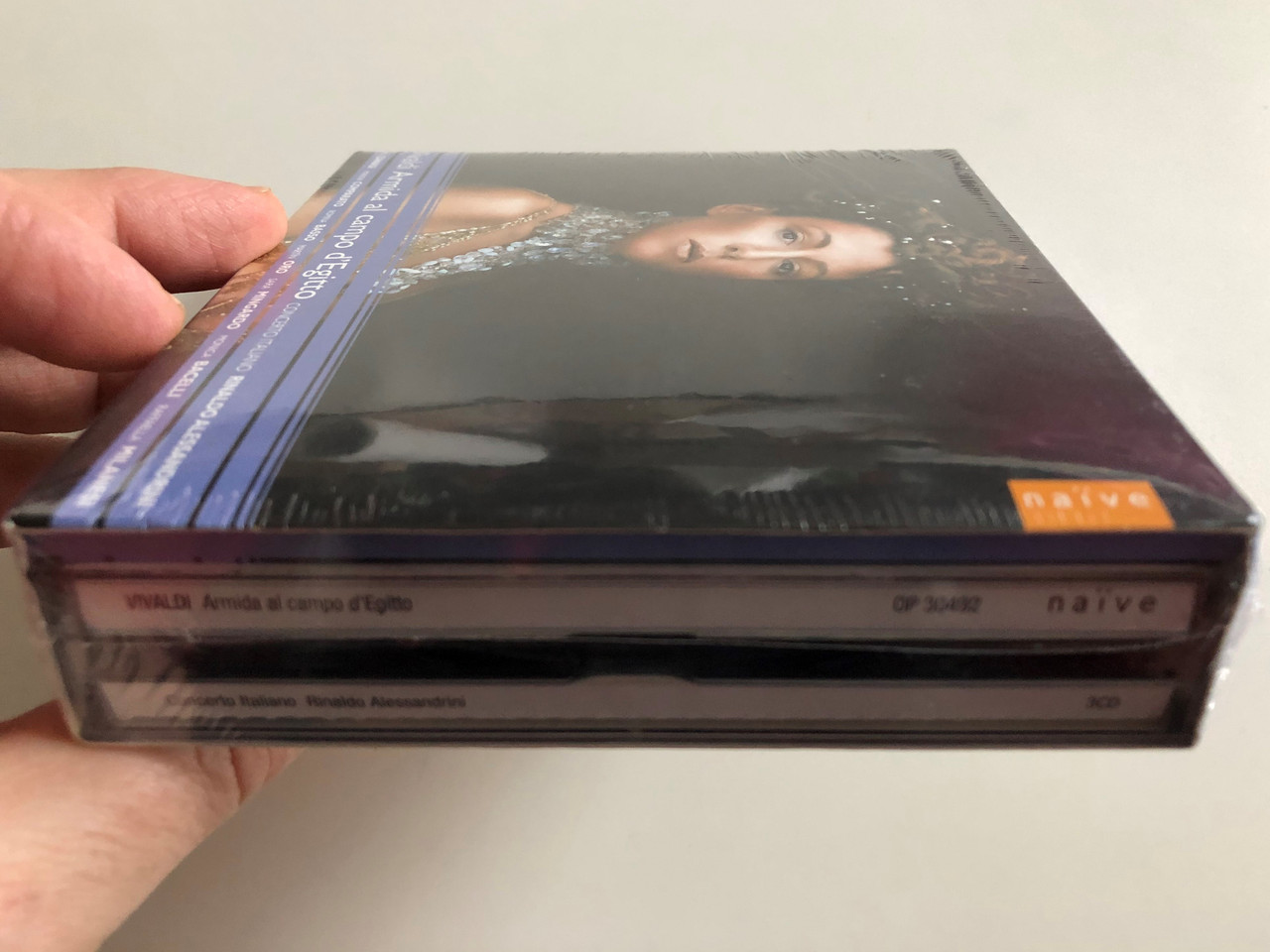Antonio Vivaldi: Armida al campo d'Egitto, RV699 (opera) - Play streams in full or download MP3 from Classical Archives (classicalarchives.com), the largest. Vivaldi: Armida al campo d'Egitto (Tesori del Piemonte, Vol. 44) is a 2009 Naive recording under the direction of Rinaldo Alessandrini. Mr Alessandrini leads the Concerto Italiano. The booklet contains 135 pages. Frederic Delmea and Rinaldo Alessandri have written the music notes. The lyrics are available in English, Italian and French. VIVALDI, A.: Armida al campo d'Egitto Opera (Alessandrini) N6 0492. Screenflow mac download. About Us; Chandos Records is one of the world's premier classical music record companies, best known for its ground breaking search for neglected musical gems. Find album reviews, stream songs, credits and award information for Antonio Vivaldi: Armida - Sara Mingardo on AllMusic - 2010.
Vivaldi's opera Armida al campo d'Egitto premiered at the small San Moisè theater of Venice during the carnival celebrations of 1718. The libretto was written by Giovanni Palazzo. The arias which comprise this work are not elaborate solo pieces as in Vivaldi's later operas. Rather they are works in which the orchestra play an important role, often providing thematic material for the vocal line in its complex, contrapuntal fabric, and acting as an equal partner to the voice. Vocal dialogues with the instruments, sensitive instrumentation, and involved accompaniments make for a lively texture throughout. French influences were important to Vivaldi at this time, and dotted rhythms, syncopations, and rhythmic vitality are important in his writing. The aria 'So che combatte ancor' is marked alla Francese and filled with dotted rhythms and other French elements. Armida was revived for the carnival of 1738, and at this time much of the music was rewritten, and arias by Leonardo Leo were added.

Appears On
| Year | Title / Performer | Label / Catalog # | AllMusic Rating |
|---|---|---|---|
| 2010 | OP 30492 |
Vivaldi Armida Libretto
The Vivaldi Edition is a highly ambitious recording project conceived by the musicologist, Alberto Basso. With high quality recording released after high quality recording on the ever-enterprising naïve label, it can truly claim to be one of the most promising and significant recording projects of the twenty-first century. The plan - which is on course - is to have released by the time of its completion in 2015 all 450 autograph works of the composer that are now collected in the Biblioteca Nazionale Universitaria in Turin, where they have been at various stages of editing and publishing since the 1930s.
This latest offering, the Dramma per musica (in three acts), Armida al campo d'Egitto RV699 (volume 44 in the Edition), is well up to the project's usual standards. The eminent and highly energetic Rinaldo Alessandrini leads this production with his Concerto Italiano, from whom the playing is light, full of life, appropriately delicate and yet punchy - as suits the libretto. Every one of the seven soloists is excellent; their delivery commends the work as worthy of close attention, despite the fact that Armida al campo d'Egitto can't claim to occupy a space at the very top of Vivaldi's œuvre.
Armida is the tenth opera in the Vivaldi Edition; it's the second one to be recorded by Rinaldo Alessandrini (their first was L’Olimpiade). It's a great success. Marking the end of Vivaldi's first period in Venice, it lacks music for Act II. Alessandrini has reconstructed it here using carefully chosen existing music of the composer with the assistance of the musicologist Frédéric Delaméa.
First performed at Carnival in 1718, Armida al campo d'Egitto has Tasso's Gerusalemme Liberata as its source. It's a revenge drama: the somewhat self-destructive, certainly determined, Armida (Sara Mingardo) has been abandoned by Rinaldo. She travels to Gaza to wreak revenge. Intrigue, deception, gesture, sorcery, malice, much rivalry and some misunderstanding all follow. Vivaldi's music (no small thanks to the libretto by Giovanni Palazzi) explores these emotions and experiences over and above any way in which the opera exposes events in a purely narrative way.
Arias, for example, unambiguously explain why the protagonists - Armida in particular - behave the way they do. Their emotions are reinforced by Vivaldi's astonishing orchestrations with colour, changes in tempo, choice of instruments. It's not a 'psychological drama' in the way we understand such a genre in the twentieth century. But Armida al campo d'Egitto also consists of a credible critique of the destructive power of obsession.
Put another way, Vivaldi (and Palazzi) were true to Tasso. Significantly, the playing and singing respect this at every turn. There's no spurious bombast or garish effect. The remorse, malevolence, positioning for advantage and lack of detachment are all conveyed with musical dignity yet with great expression and involvement. Alessandrini has struck the idiom perfectly.
The book(let) that comes with this three-CD set runs to 135 pages, only half of which is the libretto - in French and English as well as in the original Italian. The rest contains useful background to Vivaldi, his operas, a synopsis, the singers and so on. How encouraging to see high standards maintained over half way into the Vivaldi Edition's progress.
If you've been collecting the Vivaldi Edition and/or love Baroque opera (there is no other currently-available recording of Armida), you should not hesitate to get this excellent release.
Mark Sealey


Vivaldi Armida Alessandrini

